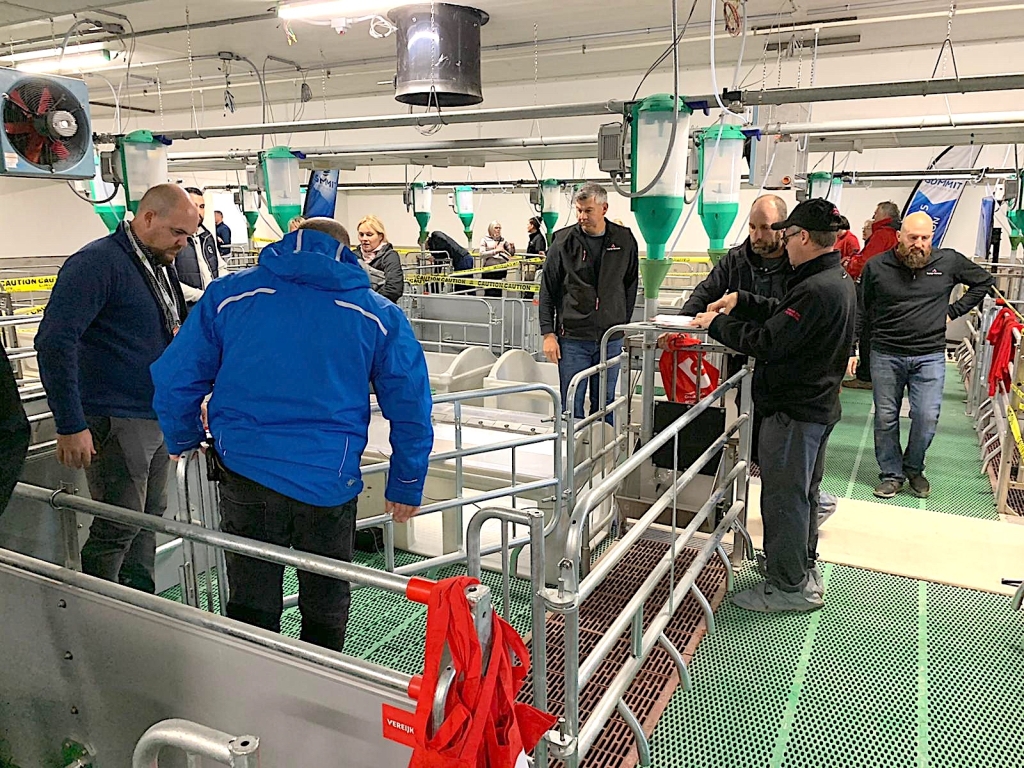
farrowing system.
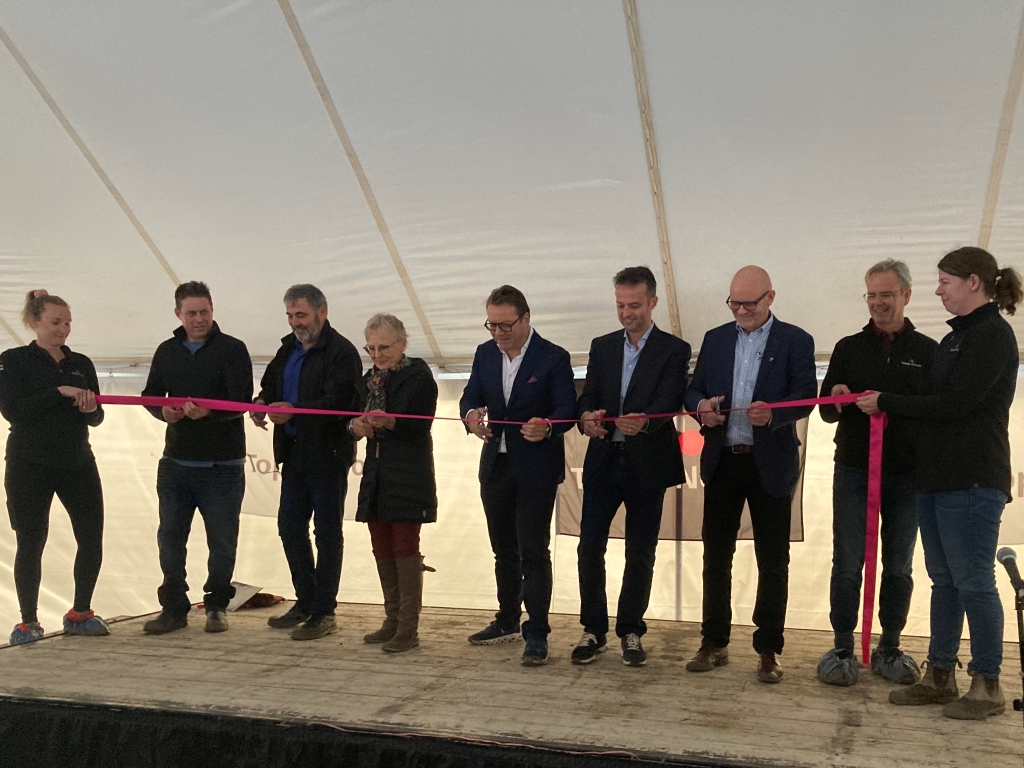
Government, Manitoba Pork
Council and Topigs executives.
On September 21, Topigs Norsvin officially opened its new nucleus farm Innova Canada which cost about 30 million dollars, near Plumas, MB. The company said the new facility Innova Canada is an important step in developing Topigs Norsvin as a global genetics supplier. The new nucleus farm is part of a bigger plan to upgrade and expand the nucleus capacity in Canada. Innova Canada is the largest investment in Topigs Norsvin’s history, leading to increased genetic progress worldwide.
Innova Canada will contribute to further accelerating genetic progress in the Z-line, one of the lines that form the basis of the TN70 sow.
Canadian sales manager John Sawatzky said swine genetics is what the company Topigs Norsvin does. While based in the Netherlands and Norway they do business in more than 50 countries worldwide.

maintain the health of the herds.
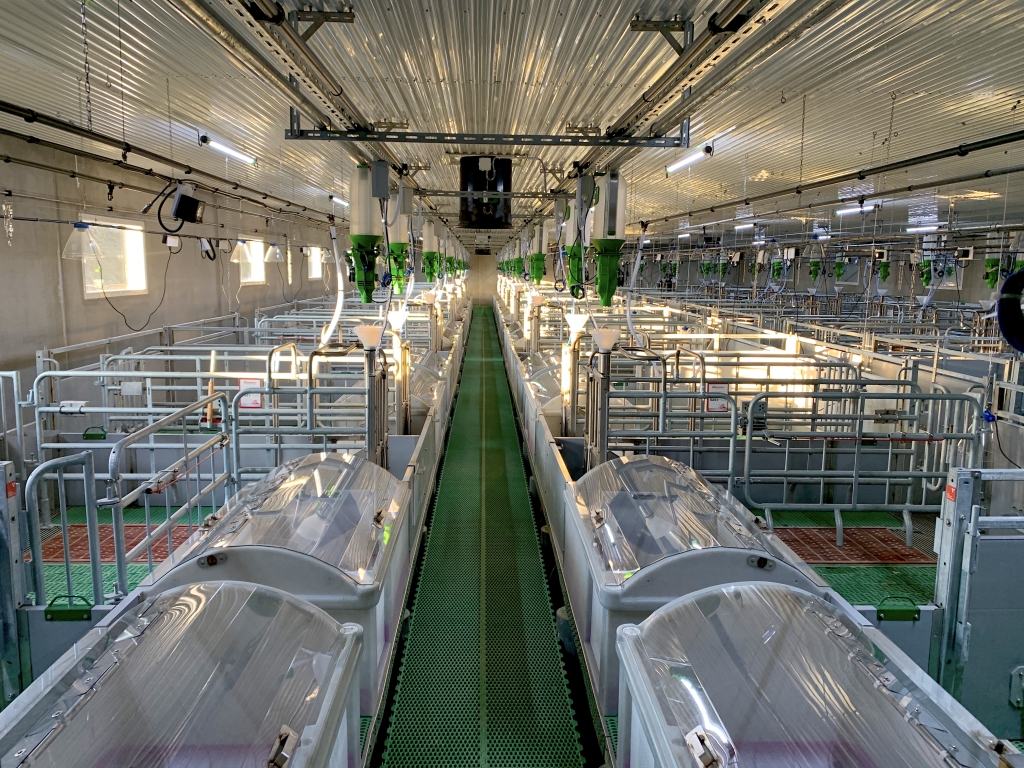
Liberté free farrowing pens.
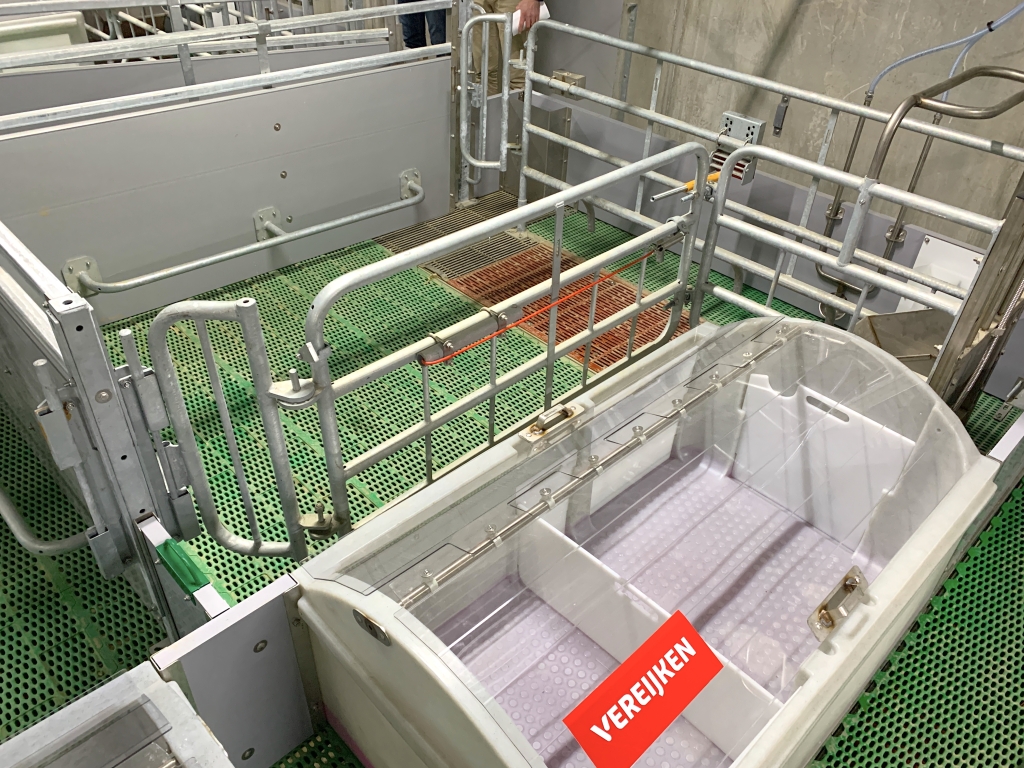
The new 1600 Sow Z-line nucleus at Plumas becomes the genetic nucleus to further genetic improvements to the breed accelerating the genetic progress with a large volume of pigs. This is in addition to the Delta Canada unit at Woodlands, MB opened in 2018 strictly as a boar-testing and CT-scanning facility. From here, the best boars get shipped worldwide or to local AI stations in Canada, the US, and worldwide.
It takes about five years before the farmer sees the benefit of such a new facility. However, Topigs Norsvin celebrated 100 years in this business last February stemming from the original breeders back in the Netherlands starting a very intensive testing program.
Sawatzky said as the genetics improve, they show up in the tube of semen the farmer buys to make his replacement females on the farm. And getting better means more prolificacy, better females, raising more pigs per sow, increasing the efficiency by reducing the feed consumption they feed to grow to slaughter weight, to go to market. And obviously to reduce the feed and the manure produced from these barns to reduce our carbon footprint.
“We’re probably one of the few that talks about environmental issues and carbon footprints and what we’re doing to reduce it. Not only for ourselves, but our customers as well, because we know whether it’s an issue today or not, but it’s an upcoming issue.”
Innova Canada runs entirely on electricity and uses no fossil energy sources like propane or natural gas. As 97% of the electricity is from hydropower, the nucleus uses renewable and virtually emission-free energy.
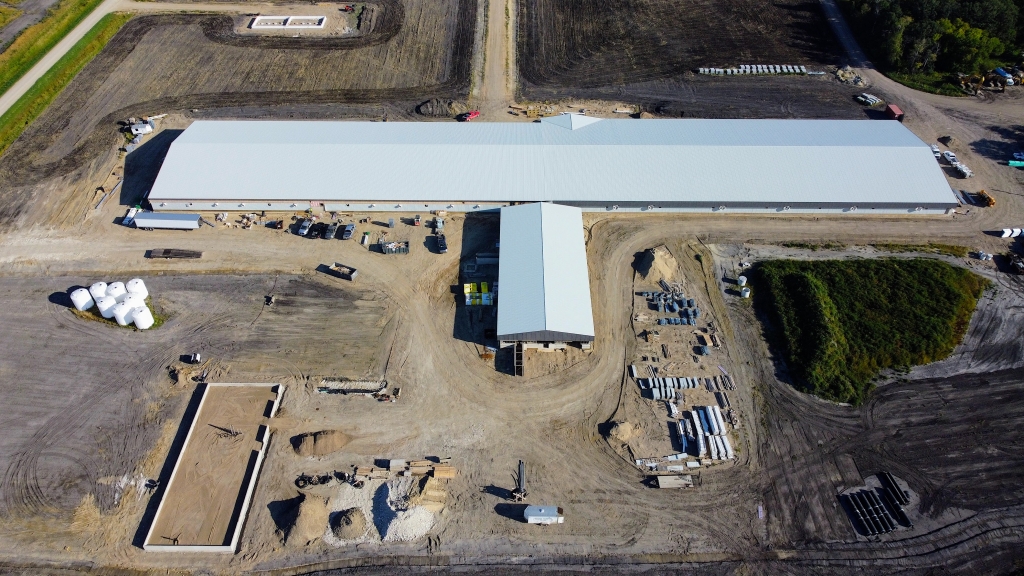
After making the improvements in the genetics at the facilities the benefits flow downhill to the farmer level.
Topigs Norsvin built Innova Canada with the highest animal welfare standards located in a part of Manitoba with high biosecurity and low pig density.
It has room for 1600 sows, Z line Genetic Nucleus, part of the Delta Canada blueprint with two sites, site one sow and nursery, site two for finishing gilts. It has 750 breeding stalls including space for 255 gilts every five weeks. Gestation, small pens with individual feed drops, simple system especially with high replacement rate, proven at Paradise Valley. Three hundred and sixty free farrowing pens, 150 per cent replacement rate. It includes internal trucking, washing and storage for biosecurity and on-site pond water storage with a water treatment plant and 25 full-time employees.
The 360 free farrowing pens at Innova are Pro Dromi Liberté system, made by Vereijken. This system can house the sows free with their piglets but also confine the sows during the farrowing process. The piglets have a nest with a microclimate and a warm waterbed floor.
Free farrowing is already mandatory in Norway and has been for many years.
Peter van Kemenade, director of global supply chain management said, “Innova Canada will be one of the two core locations for creating genetic progress. The other one is in Norway. Both are connected with a Delta test station to rear and test young boars from the nucleus. Our structures in Canada and Norway are unique and unprecedented in pork genetics.”
Customers of Topigs Norsvin will notice the effect of Innova Canada. Genetic progress will accelerate and this higher progress will be delivered faster.
“This will boost the performance in our customers’ barns, leading to a higher profit. Reliability will also increase. Animals and semen will be available in higher numbers and constant flow.” •
— By Harry Siemens





